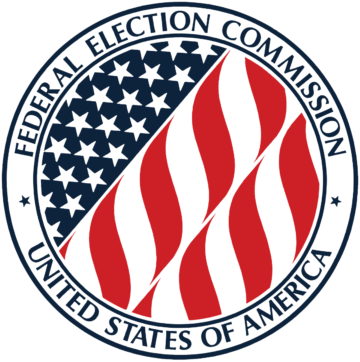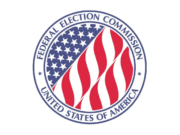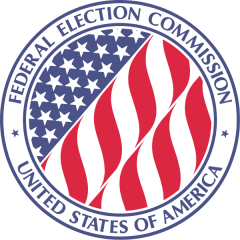Chief FOIA Officer
Federal Election Commission
999 E Street, N.W.
Washington, DC 20463
Via Electronic Mail
Re: Freedom of Information Act Appeal
Dear Sir or Madam:
This is an appeal under the Freedom of Information Act (FOIA), pursuant to 11 CFR § 4.8.
On April 3, 2014, the Center for Competitive Politics (“CCP”) requested an unredacted copy of the First General Counsel’s Report, dated June 22, 2011, in the matter of Crossroads Grassroots Policy Strategies (MUR 6396). That request was assigned the tracking number “FOIA Request 2014-38.” On April 10, 2014, CCP received a response to its request in an electronic communication signed by Robert M. Kahn.
The Federal Election Commission’s own regulations indicate that it “will make the fullest possible disclosure of records to the public…[and] General Counsel’s Reports…shall be placed on the public record of the Agency.” 11 C.F.R. §§ 4.2, 5.4(a)(4). Furthermore, as the D.C. Circuit reiterated just a few weeks ago, “FOIA was…designed to pierce the veil of administrative secrecy and to open agency action to the light of public scrutiny.” Citizens for Responsibility and Ethics in Washington v. U.S. Dep’t of Justice, 2014 U.S. App. LEXIS 5974, at *3 (D.C. Cir. Apr. 1, 2014) (internal citations and quotation marks omitted).
According to Mr. Kahn’s message, the initial request was denied under FOIA Exemptions 5 and 7(E). Copies of CCP’s FOIA request and Mr. Kahn’s determination are attached for your convenience. Specifically, Mr. Kahn wrote that “[t[he document you requested is subject to the privileges protected by Exemption 5, including the deliberative process privilege, attorney work-product privilege, and/or attorney-client privilege.” Further, “[t]he document you requested includes information concerning guidelines for law enforcement investigations or prosecutions that if disclosed could reasonably be expected to risk circumvention of the law, and thus the information is covered by Exemption 7(E).”
CCP appeals this determination, for the reasons given below.
Deliberative Process Privilege
The deliberative process exemption “was created to protect the deliberative process of the government, by ensuring that persons in an advisory role would be able to express their opinions freely to agency decision-makers without fear of publicity.” Nat’l Institute of Military Justice v. U.S. Dep’t of Defense, 512 F.3d 677, 680 (D.C. Cir. 2008) (internal citations and quotation marks omitted). But its scope is limited. “[A]s with all exemptions under FOIA, the deliberative process privilege must be construed as narrowly as is consistent with efficient government operation.” Army Times Publishing Co. v. Dep’t of the Air Force, 998 F.2d 1067, 1069 (D.C. Cir. 1993) (internal citations and quotation marks omitted).
It is CCP’s understanding that the requested document was “clearly prepared with an expectation that it would be reviewed by Commissioners and the general public, per Commission policy and practice.” Supplemental Statement of Reasons of Chairman Lee E. Goodman and Commissioners Caroline C. Hunter and Matthew S. Peterson, In the Matter of Crossroads Grassroots Policy Strategies (MUR 6396), (March 25, 2014) at 3. Indeed, since 2009, the Commission has stated that “the Commission intends to approve any FOIA request seeking a First General Counsel’s Report…that has not yet been placed on the public record.” 74 Fed. Reg. 66132, 66133 (Dec. 14, 2009).
Moreover, because the deliberative process privilege is intended to protect frank discussions undertaken with the expectation that they will not become public, it is difficult to see how a document that was “circulated by the Commission Secretary for a vote and was voted on as a First General Counsel’s Report,” all with the clear intention of public disclosure, would fall into the deliberative process exemption. Supplemental Statement at 3; see also 74 Fed. Reg. at 66132 (“[T]he Commission is resuming the practice of placing all First General Counsel’s Reports on the public record, whether or not the recommendation in these First General Counsel’s Reports are adopted by the Commission”). The Commission may not retroactively change the context in which the First General Counsel’s Report was drafted, nor the authors’ expectation that it would be made public. That expectation alone is sufficient to rebut Mr. Kahn’s reasoning; there is no “process” to protect where the Commission’s advisors did expect that their recommendation would be made public.[1]
Moreover, to the extent that the Report merely implements existing Commission regulations concerning Political Committee status, the exemption does not “protect communications that implement an established policy of an agency.” Taxation with Representation Fund v. Internal Revenue Service, 646 F.2d 666, 677 (D.C. Cir. 1981) (internal citation omitted).
Work Product and Attorney-Client Privileges
“The work-product doctrine protects from disclosure materials ‘prepared in anticipation of litigation…’” and the attorney-client privilege “promotes the adversary process by insulating an attorney’s litigation preparation from discovery.” Williams & Connolly v. Securities Exchange Commission, 662 F.3d 1240, 1243 (D.C. Cir. 2011) (citing to, inter alia, Fed. R. Civ. P. 26(b)(3)(A)); United States v. Deloitte, LLP, 610 F. 3d 129, 140 (D.C. Cir. 2009) (internal citation omitted). But the General Counsel’s Report dealt with a Reason to Believe finding—that is, the Commission could not, as a legal matter, engage in litigation until after the full Commission found reason to believe a violation had occurred (which it did not, of course, do). Consequently, the possibility of litigation was too remote to trigger the work product doctrine.
Similarly, the attorney-client privilege does not appear to apply to the requested document. “Voluntary disclosure waives the attorney-client privilege because it is inconsistent with the confidential attorney-client relationship.” Deloitte, 610 F.3d at 140 (internal citation omitted). General Counsel’s Reports are, per Commission policy since 2009, prepared in anticipation of being made public. This eliminates the expectation of confidentiality upon which the attorney-client privilege hinges.
Risk of Circumvention
Moreover, as CCP stated in its original request, there is an indication that the Report contains information regarding the General Counsel’s preferred legal test for determining major purpose. Presumably, this is the information that the Commission’s FOIA center believes “includes information…that if disclosed could reasonably be expected to risk circumvention of the law.
But understanding how major purpose is determined would not “inform the[] cost-benefit analysis about the advantages of evading the law.” Mayer Brown LLP v. Internal Revenue Service, 562 F.3d 1190, 1195 (D.C. Cir. 2009). Rather, it would inform the regulated community about what the law is. Knowing what the law is can only be beneficial. See also Mayer Brown LLP v. Internal Revenue Service, 562 F.3d at 1194 n. 1 (“Of course, we recognize material like discussion and digests of useful case law…[are] precisely the type of information appropriate for release under the FOIA. Where the information is nothing more than garden-variety legal analysis, it does not fall under exemption 7(E)”) (internal citations and quotation marks omitted).
“[M]aking these documents available to the public promotes compliance by giving practitioners the fullest possible education about how the Commission arrived at the outcomes of particular cases.” Memorandum to the Commission, First General Counsel’s Reports and the Public Record (Oct. 14, 2009) at 6, available at: https://www.muckrock.com/foi/united-states-of-america-10/chief-foia-officer-exemption-5-guidance-federal-election-commission-7070/#1021461-responsive-documents It is no one’s interest—not the regulated community’s, nor the Commission’s—for organizations to inadvertently become PACs because the Commission believes its test for PAC status ought to be secret.
Further, release of the First General Counsel’s Report would assist the Supreme Court in understanding the precise nature of the FEC’s major purpose test. Presently, the case Free Speech v. FEC, No.13-772, is before the Court for consideration on a petition for a writ of certiorari. Petitioners, who believe the major purpose test under 11 C.F.R. § 100.22(b) is unconstitutional, have pointed out that an “assumption steadily advanced by the Commission’s attorneys…is that the elements relied upon by the FEC [in determining major purpose] are made public and bear some consistency.” Pet. Supp. Br. at 1. But the Commission’s failure to disclose the Report would appear to contradict that assertion, a point that has been explicitly brought to the Court’s attention. See Pet. Supp. Br. at 3.
The decision to redact the views of the Office of General Counsel does little to advance appropriate enforcement priorities and much to further confusion. OGC is able to impose enormous costs on organizations through its investigatory and audit powers. As a fundamental matter of fair play and due process, the regulated community should have advance notice of how the Commission’s attorneys would define an organization’s major purpose, especially as that analysis was mandated by the Supreme Court in order to save the definition of “Political Committee” from invalidation on grounds of constitutional vagueness and overbreadth. Buckley v. Valeo, 424 U.S. 1, 79 (1976).
The Commission should take this opportunity to clearly state that guidance is an invitation to compliance, not circumvention. Invoking Exemption 7(E) in this constitutionally-sensitive context is inappropriate and, frankly, disheartening.
Reasonable Segregation of Non-Exempt Information
Finally, CCP notes that the Commission originally redacted the Report in its entirety. Even if the Commission believes that certain portions of the Report are exempt, even the release of a partially unredacted document would further the public interest. Citizens for Responsibility, 2014 U.S. App. LEXIS at *4 (“FOIA’s limited exemptions do not obscure the basic policy that disclosure, not secrecy, is the dominant objective of the Act”) (internal quotation marks and citations omitted). It seems improbable that the Report contains no information subject to FOIA. Indeed, in FOIA cases, the government “has the burden of demonstrating that no reasonably segregable information exists within the documents withheld.” Army Times, 998 F.2d at 1068 (internal citation omitted).[2]
* * *
“By making closed investigative files public, the Commission enables the public to review how effectively the campaign finance laws are being enforced to protect the integrity of the electoral system and to reassure themselves that the administration of those laws is being conducted in a fair, consistent, and nonpartisan manner.” First General Counsel’s Reports and the Public Record at 5. These interests are very much in play. The Office of General Counsel has chosen to withhold its own view of political committee status, despite having prepared a document on that topic with an eye toward public distribution, and invoked a number of FOIA exemptions that have no clear application to CCP’s narrow Request.
As fundamentally, the Commission’s established policy, enshrined in its regulations, would make this document publically available. Its failure to release a First General Counsel’s Report in this one instance raises precisely those questions concerning the “fair, consistent, and nonpartisan” enforcement of the nation’s campaign finance laws that informed its decision to release such reports in the first place.
During normal business hours, I can be contacted at 703-894-6800. Thank you for your consideration of this appeal.
Very truly yours,
Allen Dickerson
Legal Director
https://www.ifs.org/wp-content/uploads/2014/04/CCP-FOIA-Appeal.pdf
[1] By contrast, while a document intended for public consumption is not protected by the privilege, it is possible that communications between the Commission and the Office of General Counsel preparatory to that document’s creation, or prior discussion drafts, would be protected from disclosure.
[2] For example, documents related to the government’s conduct of the Global War on Terrorism have been less-heavily redacted. See e.g. https://www.aclu.org/files/assets/cia_release20100415_p01-09.pdf.














